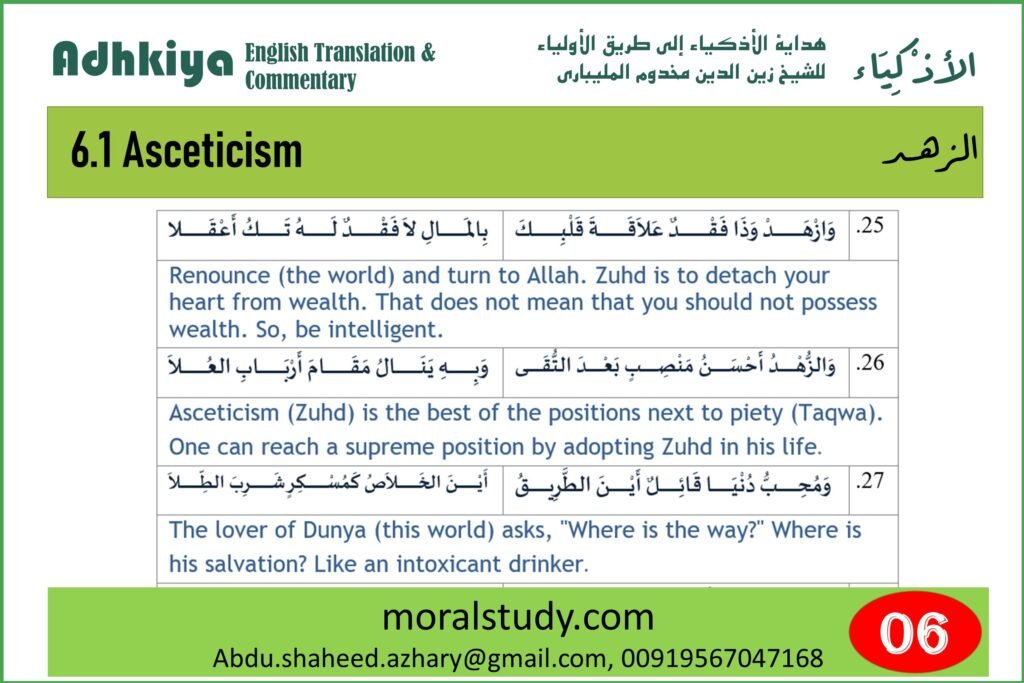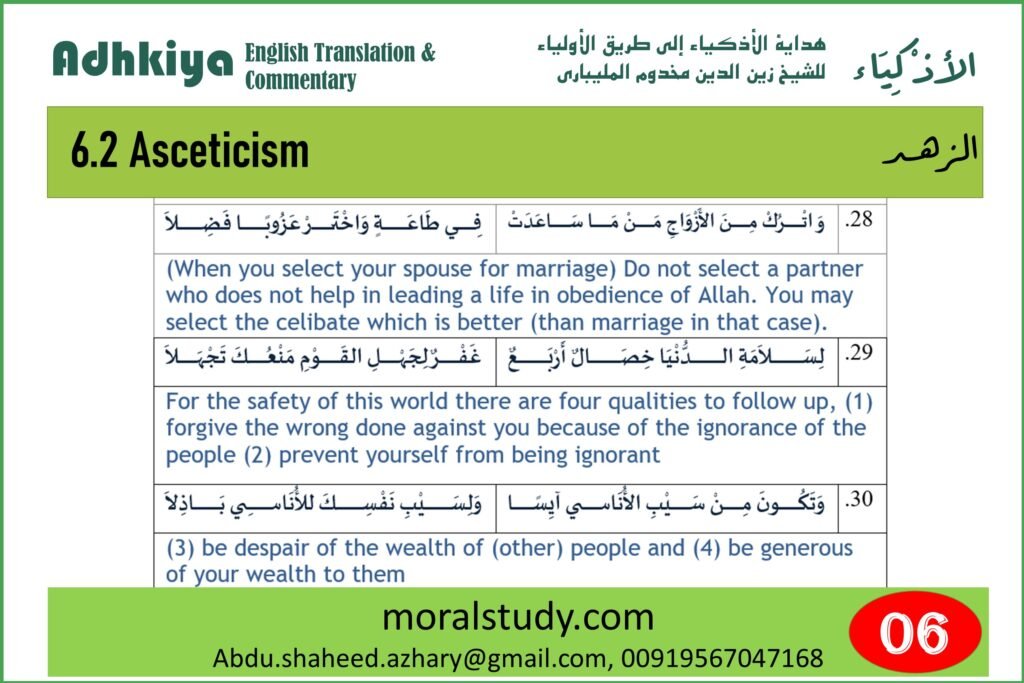In the well-known Tasawwuf
book ‘Al Qushairiyya’, a definition of Zuhd that is attributed to Imam Junaid
is given as follows.
الزُّهْدُ اسْتِصْغَارُ الدُّنْيَا وَمَحْوُ
آثارِهَا مِنَ القَلْبِ
Zuhd means to belittle this world (dunya)
and remove its traces from the heart. Zuhd is the best way
to get the satisfaction of Allah.
This means sometimes a
Sheikh (Sufi educator) may order his Mureed (his discipline or student) to lead
a difficult life and practice some kind of Mujahadat, ie eat little food, wear
simple clothes or give a lot to charity. These orders should be treated as
medications to purify his heart from the attachment of this world (Dunya). They
are just a medium of getting into the way of Allah.
One can maintain Zuhd in
all walks of life. Doing activities such as business, marriage, job, and socialization
are not against maintaining Zuhd. The substance of Zuhd is to consider wealth
as nothing and to make sure that his heart is not connected in any way with his
health. Neither having money nor a lack of money bothers him. It is a state of
love for Allah that makes him neglect everything other than Allah.
One of the hadith
reported by Ibn Maja reads like this:
جاء رجل إلى رسول الله صلى الله عليه
وسلم فقال: يا رسول الله دُلَّني عملٍ إذا عملته أحبَّني اللهُ وأحبَّني الناسُ قال له: ” ازهدْ في الدنيا يُحبُّك اللهُ،
وازهدْ فيما عندَ الناسِ يحِبُّوكَ ” [1]
“A man came to the prophet r and said: ‘Oh prophet of Allah, inform me of an act for which Allah
and the people will love me!'”
The Prophet answered,
‘Renounce this world, Allah will love you, abstain from what is with the
people, they will love you.’
One of the popular
sayings of Sufi is
لَيْسَ الزّهْدُ أنْ تَتْرُكَ الدُّنْيَا
مِنْ يَدِكَ وَهِيَ فِي قَلْبِكَ، وَإِنَّمَا الزُّهْدُ أَنْ تَتْرُكَهَا منْ قَلْبِكَ
وَهِيَ فِي يَدِكَ
Zuhd is not to quit Dunya from your hand
while it is in your heart, but Zuhd is to quit from your heart while it is
still available in your hand.
The author points out
four important facts about success in life.
1. to forgive the injustice of the people.
2. to abstain from doing injustice to the people.
3. not to look towards the wealth of the people.
4. to be generous of his wealth and give in
charity as much as possible.
He also recommends
studying three basic branches of knowledge: Aqeeda (Islamic theology), Fiqh
(Islamic jurisprudence) and Tasawwuf (Islamic mysticism). They are Fard Ain or
personal obligation of every Muslim.

